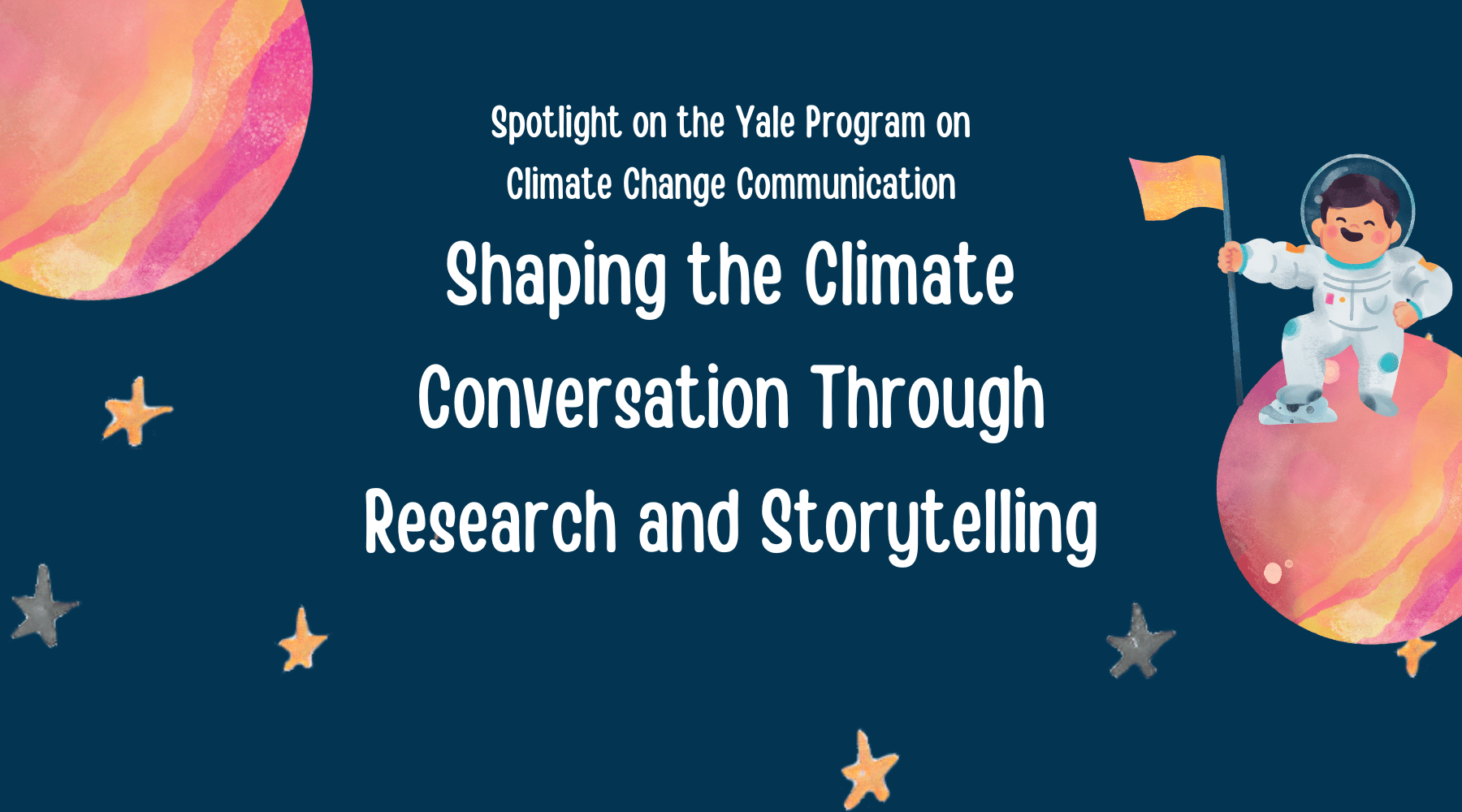(866)223-5699
(866)223-5699

In today’s critical moment of climate action, communication is everything. Scientific data alone isn't enough to shift minds or shape policy. What’s needed is connection—between people, values, facts, and futures. That’s where the Yale Program on Climate Change Communication (YPCCC) shines. As a pioneering initiative at the intersection of climate science, psychology, sociology, and media, YPCCC has emerged as one of the world’s leading authorities on how people understand and respond to climate change.
At its core, YPCCC is working to answer one deceptively simple question: How do we talk about climate change so people listen, understand, and act? The answers they’ve uncovered are transforming not just how climate information is shared, but how it's understood across regions, demographics, and political lines.
Founded and directed by Dr. Anthony Leiserowitz, a recognized expert on public opinion and climate change, the Yale Program on Climate Change Communication brings together researchers, data analysts, and storytellers to explore the nuances of climate-related beliefs and behaviors.
The program is housed at Yale University but its impact is global. Through its groundbreaking public opinion surveys, behavioral science insights, and communication strategies, YPCCC is helping governments, NGOs, journalists, educators, and companies better engage the public in meaningful climate dialogue.
One of the program’s signature contributions is the “Six Americas” framework, which segments the U.S. population into six distinct groups based on their climate change beliefs—from the "Alarmed" to the "Dismissive." This model has revolutionized how communicators tailor their messaging and outreach strategies.
YPCCC's work is vast but rooted in rigorous research and data-driven storytelling. Here are some of the most impactful ways the program is driving change:

Perhaps their most widely known tool, the Yale Climate Opinion Maps provide detailed insights into public beliefs about climate change at the national, state, congressional district, and county levels in the U.S. These interactive maps allow users to explore how Americans feel about climate change, support for policies, perceived risk, and trust in climate scientists.
These tools are invaluable for policymakers, journalists, educators, and advocates who need to understand their communities and tailor engagement strategies accordingly. They've become a go-to resource for everything from grant writing to media coverage to campaign targeting.

The YPCCC conducts regular national and international surveys to track changes in climate change awareness, concern, and behavior. These insights are often cited in major news outlets and academic papers and help shape climate discourse at the highest levels.
Their collaboration with George Mason University in the “Climate Change in the American Mind” series offers some of the most in-depth longitudinal data on how attitudes toward climate change have evolved over the years.

The program doesn’t just produce research—they translate it into tools that are usable, shareable, and impactful. This includes messaging guides, audience personas, webinars, and even free online courses that train communicators on how to apply behavioral science to climate storytelling.

YPCCC frequently partners with media outlets like NPR, The New York Times, The Guardian, and National Geographic to bring their data to life through stories that resonate with diverse audiences. They've also worked with local governments, climate nonprofits, and global institutions to improve outreach and education efforts.

The 2020s are shaping up to be the make-or-break decade for climate action. Amid record-breaking heatwaves, extreme weather events, and rising seas, public understanding and support for climate solutions are critical. But science doesn’t speak for itself—people do.

That’s why the work of the Yale Program on Climate Change Communication is so timely and vital. Their mission goes beyond education; it's about empowerment. By giving communicators the tools to connect emotionally and culturally with different audiences, they are helping to transform apathy into awareness, and awareness into action.
As a platform dedicated to sharing knowledge and promoting collaboration in the climate space, we at [Your Website Name] deeply admire the work of the YPCCC. Their commitment to combining hard data with human connection mirrors our own mission: to bridge the gap between information and inspiration.
We often reference the Yale Climate Opinion Maps and “Six Americas” framework in our own outreach and strategy efforts. These resources have been instrumental in helping us understand audience dynamics and fine-tune our messaging in ways that feel grounded, respectful, and effective.
We believe that greater visibility of YPCCC’s work can only help amplify climate solutions. To that end, we’re proud to spotlight their contributions and encourage our readers, partners, and peers to explore the full depth of what they offer at https://climatecommunication.yale.edu.
We’d be honored to explore a content or resource-sharing collaboration with the YPCCC team. As fellow advocates for strategic communication in the climate space, we believe that by working together, we can reach broader audiences and help accelerate the cultural shift we so urgently need.
Whether it’s cross-linking educational content, contributing guest blog posts, or co-promoting tools and reports, we’re eager to support and help amplify the incredible work being done by the Yale Program on Climate Change Communication.
In a world awash with information and noise, the ability to communicate clearly and persuasively is one of the most powerful tools we have in the fight against climate change. The Yale Program on Climate Change Communication understands this deeply—and they’re helping the rest of us understand it, too.
By studying how people think, feel, and act on climate issues, and by providing accessible tools to reach them where they are, YPCCC is doing more than communication. They are cultivating empathy, driving action, and shaping the global conversation on one of the most important challenges of our time.
We invite our readers to dive deeper into their work at https://climatecommunication.yale.edu and to consider how your own climate messaging could be informed—and inspired—by their research.
If you’re from the YPCCC team and would be open to sharing this profile or connecting on future collaborations, we’d love to hear from you. Let’s keep the conversation going.
Leave a comment